Key takeaways:
- Pro-life advocacy emphasizes the inherent value of human life and encourages empathy through personal stories and community engagement.
- Active participation in community discussions fosters deeper understanding and support, strengthening the pro-life movement.
- Selecting diverse literature that sparks empathy and dialogue can enhance personal perspectives on pro-life issues.
- Creating a supportive environment in group discussions promotes open sharing and fosters a sense of connection among members.
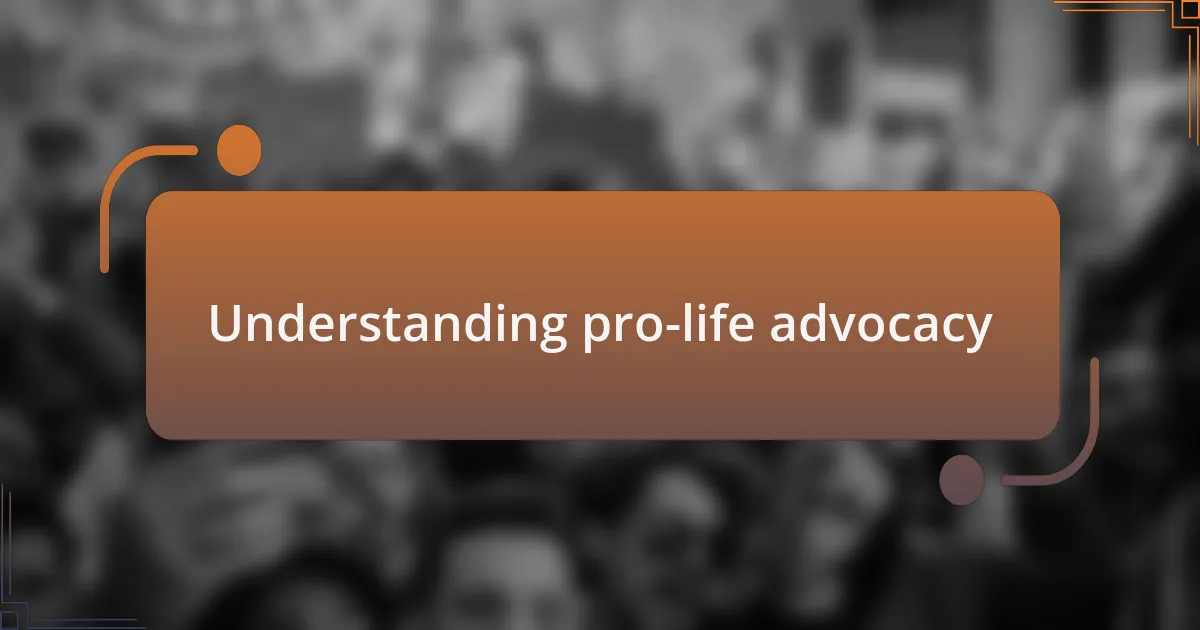
Understanding pro-life advocacy
Pro-life advocacy centers around the belief in the inherent value of every human life, from conception to natural death. I often reflect on my own journey toward this perspective, recalling the powerful experiences that shaped my understanding. It’s crucial to explore how these convictions influence policies and everyday conversations about life and choice.
As I engaged in discussions about pro-life issues, I often found myself asking, “What does it mean to truly respect life?” It’s not just a stance; it’s an empathy-driven approach that challenges us to consider the stories behind every situation. By sharing stories of hope and resilience, I’ve seen how transformative these narratives can be in fostering understanding.
I remember a poignant moment at a local event where a mother shared her journey of choosing life despite facing immense challenges. Her story didn’t just resonate; it inspired. In moments like these, I recognize that pro-life advocacy is about listening and caring for one another, understanding the context of each unique situation, and nurturing a community rooted in compassion.
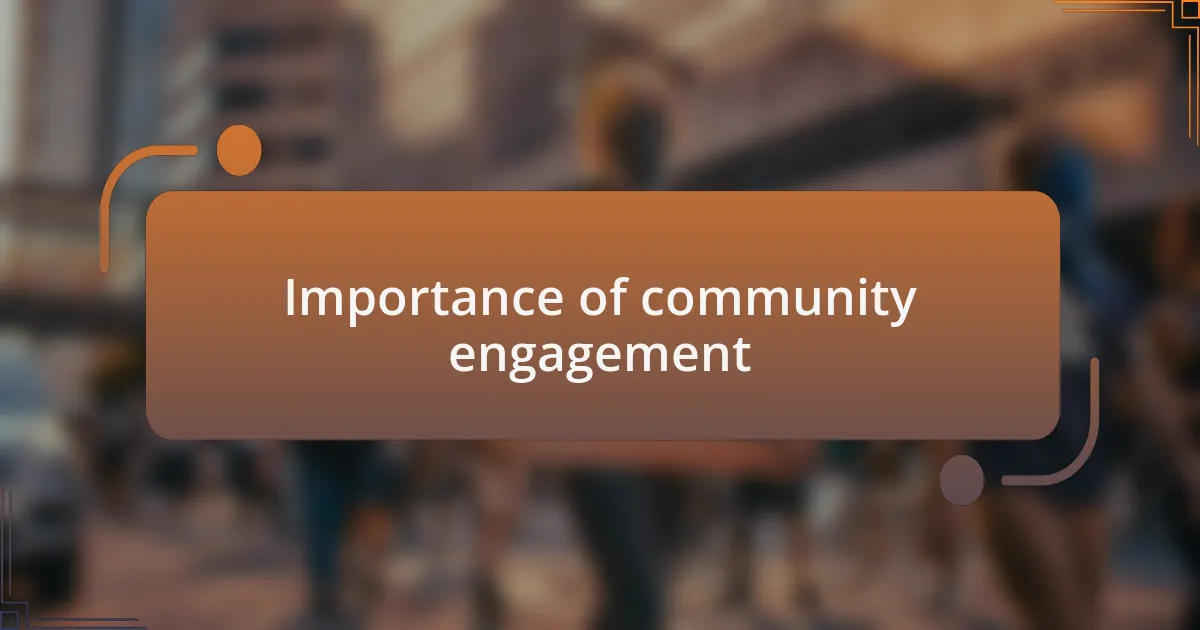
Importance of community engagement
Engaging with the community is essential in the pro-life movement because it broadens our understanding of the issues at hand. I often recall attending a town hall meeting where diverse voices came together to discuss life and choices. Hearing different perspectives deepened my empathy and highlighted the need for collaboration; it wasn’t just about policy but about people.
One of my most striking experiences involved organizing a local gathering that aimed to connect individuals interested in pro-life advocacy. The connections formed that night were palpable—people shared their personal struggles and victories in ways that truly brought the mission to life. It reminded me that community isn’t just built on shared beliefs; it thrives on shared humanity and support.
I sometimes wonder how transformative our impact could be if every pro-life advocate took the time to engage with their community actively. From book clubs to support groups, forming those connections fuels our resolve and encourages collective action. The stories and relationships we create through this engagement make our advocacy more relatable, more human, and ultimately, more powerful.
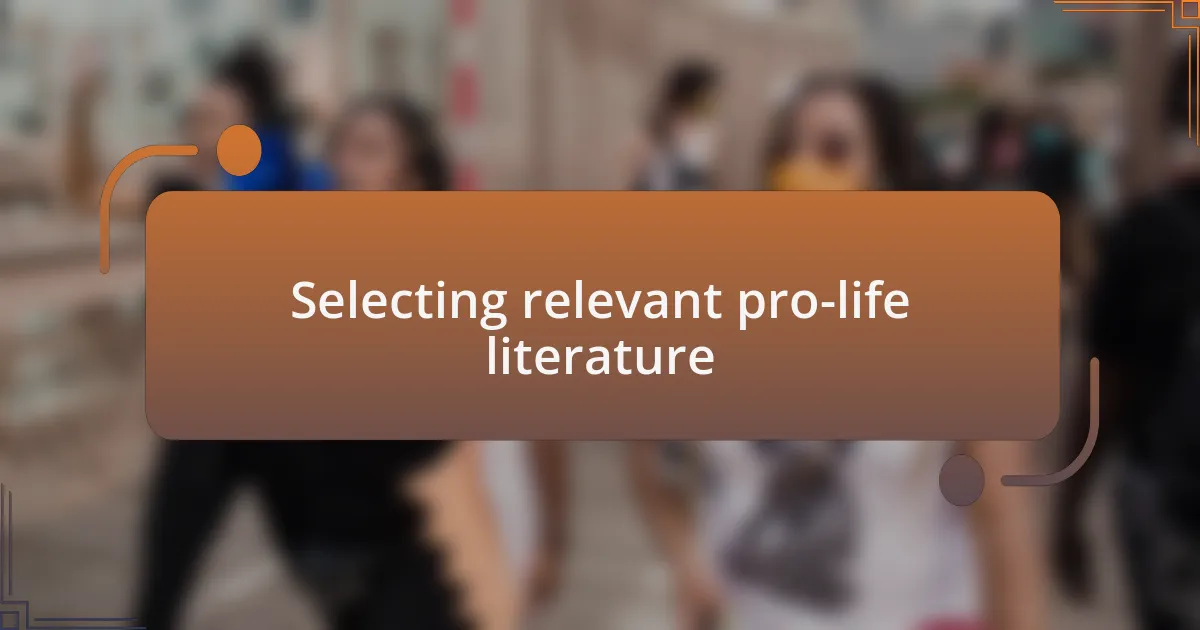
Selecting relevant pro-life literature
Selecting literature that resonates with pro-life values requires thoughtful consideration. I remember when I first began curating a reading list; I searched for books that didn’t just present facts but also conveyed the heart of the pro-life message. One poignant title that stood out was a memoir detailing a personal journey through an unexpected pregnancy. Reading stories like this not only informed my perspective but also evoked emotions that statistics alone could never capture.
It’s essential to include a mix of genres in our reading selections—biographies, essays, and even poetry can all speak to the nuances of life advocacy. I once introduced a collection of essays to my book club that stirred rich discussions about choice, responsibility, and hope. The varying voices within those pages helped us navigate complex feelings about life circumstances and reaffirmed our shared commitment to advocating for every life.
What I’ve found is that literature has the unique ability to bridge gaps in understanding and spark conversations that may otherwise feel daunting. In selecting books, I often ask myself, “Will this encourage empathy and provoke thoughtful dialogue among members?” Each choice can significantly impact how we relate to our mission and each other, making the quest for relevant pro-life literature a profoundly enriching endeavor.
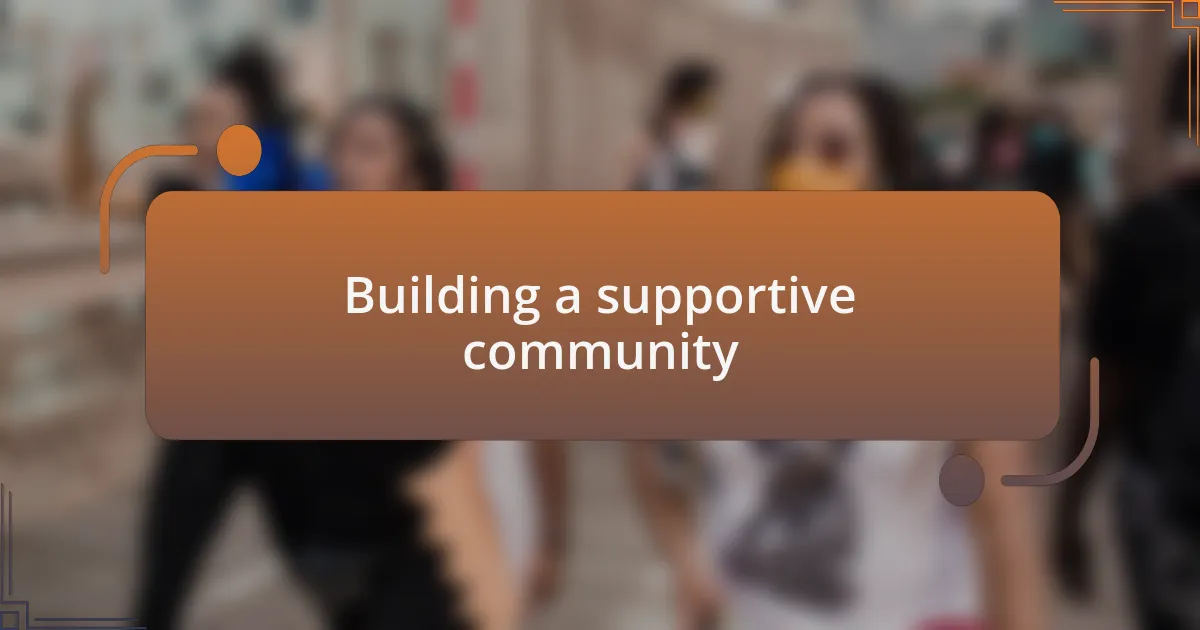
Building a supportive community
Creating a supportive community within a book club has always been a priority for me. I remember the first time we gathered to discuss a powerful novel about a woman’s journey to choose life; the room was filled with a palpable sense of connection. It’s remarkable how sharing our thoughts on a book can transform a simple gathering into a safe space where we can openly express our joys, fears, and hopes regarding pro-life issues.
During one particularly memorable meeting, a member shared her own story of resilience and courage. Her vulnerability inspired others to come forward with their experiences, fostering an environment of empathy that I hadn’t anticipated. Isn’t it amazing how storytelling can build bridges among us? By encouraging everyone to share and listen, we not only deepen our understanding of the pro-life message but also strengthen the bonds that hold our community together.
I often find myself reflecting on the importance of encouragement within our discussions. By celebrating each member’s contributions, we affirm that every voice matters in this advocacy. When someone feels seen and valued, it fuels their passion for our cause. Wouldn’t you agree that a supportive network is crucial for us to thrive?
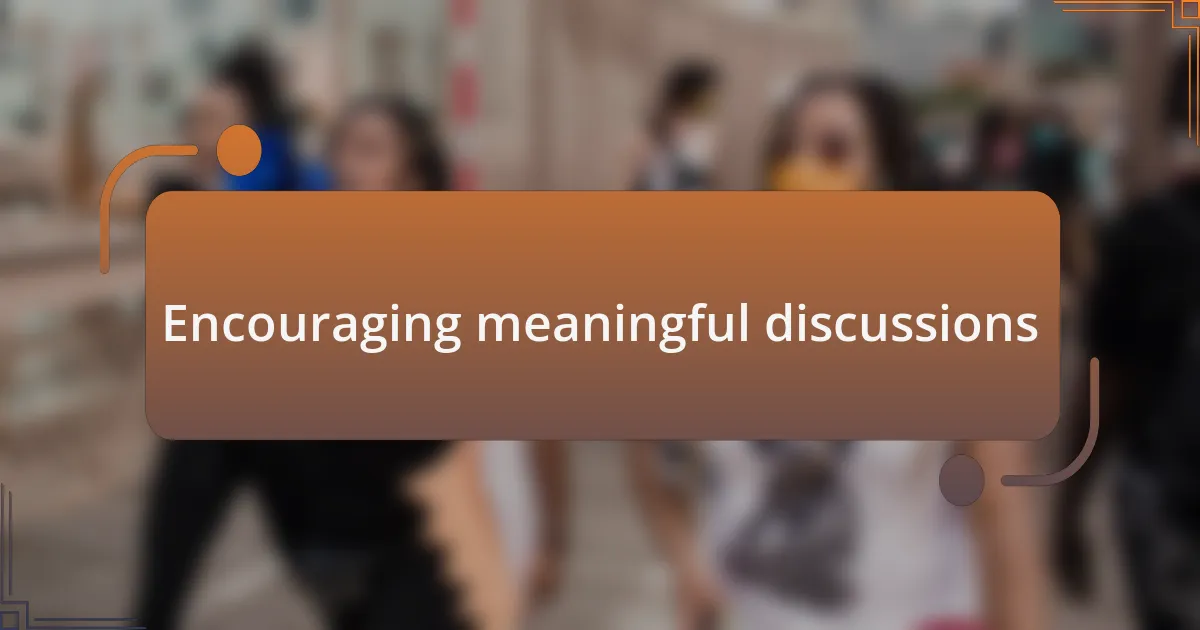
Encouraging meaningful discussions
Encouraging meaningful discussions in our book club has become a transformative experience for me. I vividly recall a session where we tackled a book that explored the complexities of making life-affirming choices. The atmosphere was thick with passion as members explored not only the plot but their own connections to the themes. It struck me how our insights often delved deeper than the text itself, revealing layers of personal beliefs and experiences that sparked vibrant discussions.
I notice that sometimes the most impactful moments happen when we dive into uncomfortable topics. One evening, when we discussed the societal pressures faced by women, a quiet member opened up about her own struggles. Her bravery shifted the dynamic in the room, inviting others to share their thoughts and questions. I wondered, how can a simple book trigger such raw honesty? It reaffirmed my belief that discussing literature is not just about the stories we read; it’s an opportunity to confront real-life dilemmas together.
To foster these meaningful conversations, I’ve found that asking open-ended questions is key. For instance, I often ask, “What does choosing life mean to you personally?” This question has led to some priceless exchanges and has helped members feel critical to the dialogue. Transforming our club into a space where everyone feels empowered to share ensures that we not only grow as readers but also as advocates for our cause. Isn’t it wonderful when each meeting feels like a heart-to-heart chat that uplifts and educates us all?